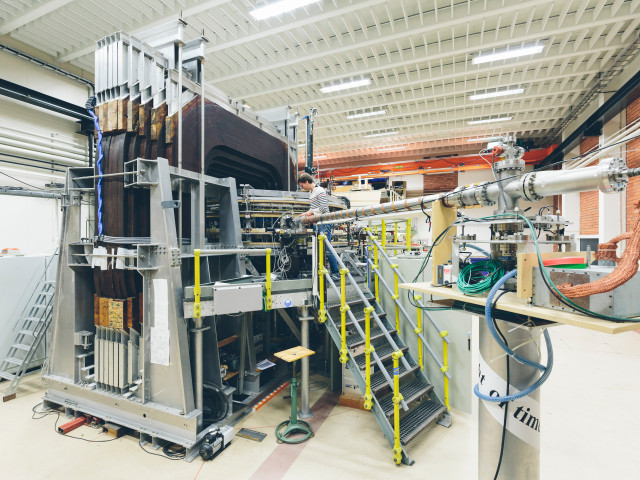Interaction between biomolecules and electromagnetic radiation. Principles of the most important methods of experimental biophysics, including IR, fluorescence, nuclear magnetic resonance, electron magnetic resonance, circular dichroism, and Raman spectroscopy, mass spectrometry, X-ray crystallography, electron microscopy, surface plasmon resonance, nuclear force microscopy, how these methods can be used to obtain information on different biomolecular properties and interactions, as well as their relative strengths and weaknesses. Overview of current development trends of these methods, as well as applications in academic research, pharmaceutical and biotechnology industries, and in healthcare.
SK2533 Experimental Biophysics 7.5 credits

The course gives an introduction to biomolecules, their structures, dynamics and interactions, and how experimental biophysical techniques can be used to investigate biomolecular properties. The course also gives an overview of how these techniques are used in practice within biotechnology, drug development, and academic research.
Information per course offering
Information for Autumn 2026 Start 26 Oct 2026 programme students
- Course location
AlbaNova
- Duration
- 26 Oct 2026 - 11 Jan 2027
- Periods
Autumn 2026: P2 (7.5 hp)
- Pace of study
50%
- Application code
51020
- Form of study
Normal Daytime
- Language of instruction
English
- Course memo
- Course memo is not published
- Number of places
Places are not limited
- Target group
- No information inserted
- Planned modular schedule
- [object Object]
- Schedule
- Part of programme
Contact
Course syllabus as PDF
Please note: all information from the Course syllabus is available on this page in an accessible format.
Course syllabus SK2533 (Spring 2022–)Content and learning outcomes
Course contents
Intended learning outcomes
The course provides good knowledge of the most important experimental methods in biophysics, their strengths and weaknesses, and how they are used in the field of biomedicine. The course is adapted for students with a background in engineering subjects.
After completing the course, students should be able to:
- explain the principles of the main methods used in experimental biophysics.
- compare strengths and weaknesses between these methods, and analyze and identify which methods are best suited to study different biomolecular properties or interactions, at the molecular, cellular, tissue or organism level.
- explain and be able to evaluate the application potential of current development trends of these methods.
Literature and preparations
Specific prerequisites
Completed degree project at the undergraduate level in engineering physics or medical technology.
English B / English 6
Literature
Examination and completion
Grading scale
Examination
- LAB1 - Laboratory work, 1.5 credits, grading scale: P, F
- PRO1 - Project, 1.0 credits, grading scale: P, F
- TEN1 - Written exam, 5.0 credits, grading scale: A, B, C, D, E, FX, F
Based on recommendation from KTH’s coordinator for disabilities, the examiner will decide how to adapt an examination for students with documented disability.
The examiner may apply another examination format when re-examining individual students.
If the course is discontinued, students may request to be examined during the following two academic years.
Examiner
Ethical approach
- All members of a group are responsible for the group's work.
- In any assessment, every student shall honestly disclose any help received and sources used.
- In an oral assessment, every student shall be able to present and answer questions about the entire assignment and solution.